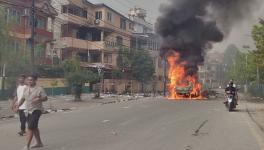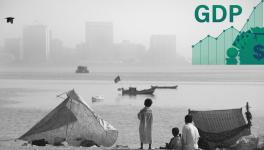Taxing Large Fortunes, a Tool of Social Justice

Several countries around the world are discussing a tax on large fortunes to deal with the consequences of the COVID-19 pandemic. The question of combating extreme inequality is a political decision that governments have to make.
According to an Oxfam study, since 2015, the richest population, which accounts for 1% of the total, has more wealth than the rest of the planet. Small elites of countries seize an increasing proportion of national income, while hundreds of millions of people still do not have access to potable drinking water or enough food for their families.
The gap between rich and poor people widens each year, causing profound differences in accessing opportunities. It also exacerbates all kinds of social inequalities.
Some data provided by Oxfam reflects that nearly half of humanity –3.4 billion people– live on less than 5.50 USD a day. And that every year 100 million people around the world fall into poverty because they have to pay for health care.
The trend towards reducing personal income and corporate taxes constitutes a significant part of the problem. Many governments do not charge sufficient taxes on businesses and the rich population.
Data from Argentina indicates that between 2015 and 2019, regressive taxes grew by 5.3% while the very progressive and progressive ones shrank by 1.4% and 1.3% respectively.
While corporate tax evasion costs poor countries at least 100 billion USD each year. This leads to the loss of significant amounts of money that could be invested in schools, hospitals or roads and other areas that generate more poverty and inequality.
The COVID-19 pandemic reaches Latin America and the Caribbean in a context of low growth, high inequality and vulnerability, with growing trends in poverty and extreme poverty.
According to the United Nations Economic Commission for Latin America and the Caribbean (ECLAC), the social distancing needed to curb the accelerated spread of coronavirus and save lives results in job losses (in 2020 there would be 11.6 million more unemployed workers than in 2019) and reduces the labour income of individuals and households.
An ECLAC study stipulates that in the face of a 5.3% fall in GDP and the increase in unemployment by 3.4%, poverty in Latin America would increase by at least 4.4% (28.7 million additional people) as compared to the previous year, reaching a total of 214.7 million people (34.7% of the region’s population).
This is why, the COVID-19 is a good time for the rich to pay more tax. The tax on large fortunes is a tool to finance the protection of the poorest people and of jobs.
In five European and six Latin American countries, the debate on taxing large fortunes is being promoted. In Argentina, it is the governing party that seeks to sanction the norm and intend to raise 1% of the GDP with this new tax.
The Argentine bill targets assets that are above 3 million USD, taking the USD at its official value. The authors of the bill stipulate that the population that will pay this new tax is made up of 12,000 people, excluding corporate assets.
In principle, this tax would be paid by 0.03% of the Argentine population. If we talk about the economically active population regularly measured by the INDEC (National Institute of Statistics and Census) this percentage would reach 0.08.
How would this tax help reduce poverty and inequalities? ECLAC demonstrates in a report that taxes on wealth and high incomes promote income redistribution, and reduce inequalities.
France, Spain, Liechtenstein, Norway, Switzerland, Netherlands are some of the countries that tax large estates.
Get the latest reports & analysis with people's perspective on Protests, movements & deep analytical videos, discussions of the current affairs in your Telegram app. Subscribe to NewsClick's Telegram channel & get Real-Time updates on stories, as they get published on our website.
























